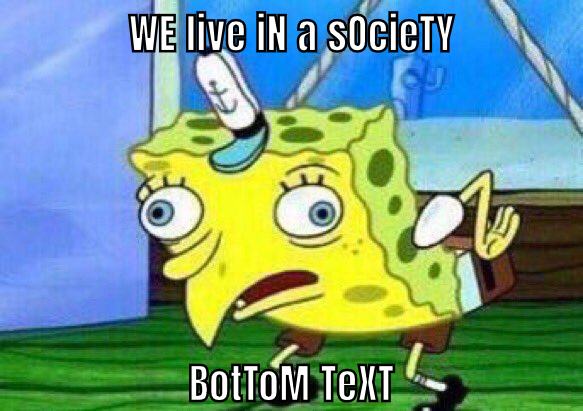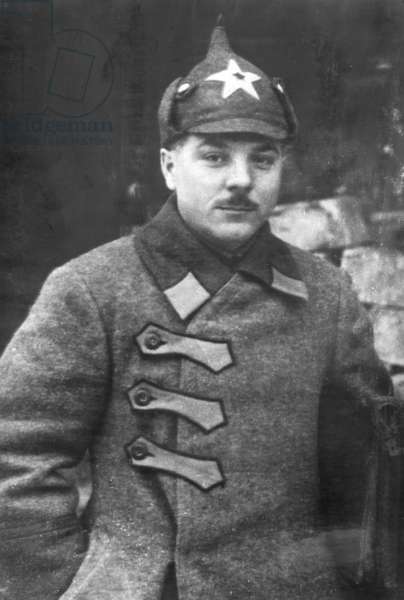Smh he didn't even try to meet them in the marketplace of ideas
This furthers my idea the film was self satire but idk if it's what Tarantino was going for and even less so of its what he would want to go for.
In the movie the nazis make an ahistorical hyper violent movie glorifying an individual as the reason the war was being won and were supposed to be disgusted at the people in the movie theater cheering on the violence.
Which is exactly what the viewers are doing as they watch an ahistorical hyper violent film about how the war was won by a few plucky American GIs and a "great women".
really not sure if this was supposed to be some kind of commentary or if the point was to rub right up against that point and the moral of the story was "but theyre nazis so fuck em"
Have a hard time articulating without making it sound like he was trying to absolve the nazis and I really don't think Tarantino message was "the people who like my films are just like the nazis" and I also don't think he's trying to comment on how the erasure of soviet contributions to the war is similar to nazis twisting history so maybe I'm reading too much into it.
Quentin Tarantino just wanted to make a movie where Hitler gets shot in the face and I really don't think it's deeper than that.
Quentin Tarantino just wanted to make a movie where we see Hitlers feet and I really don't think it's deeper than that.
I just watched Kill Bill and I had heard about QT's foot thing but didn't remember noticing it in Inglorious Basterds. Anyway in Vol. 1 Beatrix's feet fill the entire screen for a solid few minutes separated by cuts to her face where she's keeps repeating "wiggle your big toe." There's technically a reason for it on screen but the way it's executed is so blatant.
That's kind of my gut feeling too but then the question is did he unintentionally make a movie about a film where the movie is almost a 1 to 1 stand in for the film?
Huh? Hitler is consumed by the fire of burning film stock, it's about the power of art and cinema ya goofus.
They are obliterating him with submachine guns when the explosives around their ankles go off.
This is just dirty dozen genre- conventions.
The thematic and spiritual point is that he burns in literal film.
Here's my take: Quentin Tarantino makes power fantasies.
Kill Bill was a power fantasy for women. She was abused by Bill, and spends 5 hours getting bloody revenge on him and his henchmen. It was a classic revenge flick that payed homage to other revenge and martial arts flicks.
Django Unchained was a power fantasy for black people. (The fact that it was written by a white dude is definitely problematic, but he seemed to have good intentions at least.) And it does feel awesome to see Django blow up a plantation at the end.
So what is Inglourious Basterds a power fantasy for? America. What is America's proudest moment? World War II. Tarantino's movie shows everything good America did, ratcheted up to 100, and nothing of the bad. It's actually brilliant, in my opinion. The movie is a reflection of how America sees WWII, not the reality, but the imagination. In reality, the USSR captured Berlin and caused Hitler's death. In the movie, America kills Hitler. In reality, America rehabilitated many Nazis. In the movie, the main Nazi gets a permanent scar in his head so he can never forget his Nazi past. In the movie, a special unit of Jewish soldiers is sent to kill Nazis by America. In reality, America was denying boats full of Jewish refugees from the Holocaust. So, the movie makes America look way better than it actually should. It does not show America bombing Dresden, let alone Hiroshima or Nagasaki. It is just pure patriotic pleasure. Inglourious Basterds is what Americans THINK happened in WWII, exaggerated to an absurd degree.
I really don't think Tarantino message was "the people who like my films are just like the nazis"
he would be the goat if that were true but every indication says he has no idea and is actually just another hollywood ghoul
I never understood this aspect of Inglorious Bastereds. There's an obvious parallel being presented between the Nazis in the audience, and the IRL audience, but what exactly is the takeaway supposed to be? Hateful 8 and Once Upon a time in Hollywood rubbed me the wrong way for the same reasons - there seems to be obvious high school level allegories and themes, but without an overall point being made.
It's a common aspect of a lot modern movies and shows, and really reveals the hollowness of the themes and a lack of understanding by the writers about what their own show is about.
There's an obvious parallel being presented between the Nazis in the audience, and the IRL audience, but what exactly is the takeaway supposed to be?
The message is very clear to us erudite, enlightened viewers. Behold! A tiny peek inside the mind palace of Quentin Tarantino!
Show
Also:
"I'm gonna say the N-word and wank off to some feet. Nobody can stop me."
I’m not sure QT is going for a coherent deep message with any of his movies. At least, not ones he doesn’t basically always contradict in the same movie. I always saw him as a fetishizer of (among other things) movies when they were churned out as product more than art. It’s why pulp fiction is called that and starts with the definition of pulp fiction basically being cheap, mindless, targeted-to-release-dopamine efficiently, bulk content. He’s making that kind of film from the 70s that somehow gets all the pieces together to exist even though the script is at least 50% corny/bad. But he gets unlimited budget (from Harvey Weinstein) and full-on movie stars and just goes all-out on them.
But then in most of the movies there is at least some navel-gazing/meta cinema tributes. And basically every plot line in IG is about movies or Hollywood or German Hollywood. And (outside the opening scene) the only ones who are not, the Basterds themselves, describe Donny bashing Nazis as “the closest thing we have to going to the movies.” So it’s not just the fantasy story where America beat the Germans, it also this fantasy story about Hollywood winning the war.
I found a YouTube link in your comment. Here are links to the same video on alternative frontends that protect your privacy:
there seems to be obvious high school level allegories and themes, but without an overall point being made.
this sounds like a problem with the interpreter, and not the work, tbqh
I’m with you when it comes to seeing the good parts of QT films like killing Nazis and racists whites, but calling a spade a spade shouldn’t be frowned on. The dude isn’t a communist by any means. Like what was the point of “once upon a time in Hollywood”? I read an interview where QT basically ranted about hippies ruining Hollywood and the death of Sharon Tate was the final nail in the coffin for golden age Hollywood. Pretty much indistinguishable from a chud screed.
yeah i would agree that there are underlying wistful and elegiac feelings or themes in OUaTiH (looking to the past, loss, feeling washed up, the subversion of history as wish fulfillment), and i think it's fair to view these as being conservative-coded or having conservative-valences. i'm of the feeling that it's his most textured and mature work (I think the violence with in it is much more complicated, esp of course with the dialogue with the Manson kids before the climax), so i guess i'd disagree that it's indistinguishable from a chud screed because i don't think the film is really that cut and dry, as being primarily didactic or being a vessel for a "message" (and because of course QT is a formal and technical master or w/e).
more broadly, my dismissive post above is simply an expression of skepticism, from, like, that famous Susan Sontag essay, at the contention that art is or supposed to be reducible to a series of statements, which are to be unearthed by interpretation. i'm not sure that's how we should engage with art, and by doing so it cuts off a lot of what's valuable.
and, more so, to your comment, and this is more a personal disposition, but i'm not of the feeling that a work needs to align so completely with my political convictions. i think in OUaTiH, there's room to have a bit of empathy for this loss of a cultural moment, for the loss of these old cultural gods (pre-New Hollywood heroes), without also disclaiming that this loss still wasn't necessary or a good thing or whatever. (having said that, i think Django is a good example of a film which has a very intentional and pointed view of the world that is very different from my own (that Django is good and correct to only lookout for himself), to the point that i think much less of the film because of it. whether or not i can insist you be open to OUaTiH while discarding Django for myself, I'm not prepared to argue here.)
No I’m not saying everything we watch should only reinforce our political views or anything, it’s that out of all his movies I think it’s pretty easy to pick out the symbols and meaning, but with OuaTiH it was easily the hardest to understand for me (which makes sense I went in expecting a movie about the Manson family, when in reality it was a movie made for people who love movies, which I’m not really). My point being i think for QT, but more broadly libs can’t really do deep cultural analysis well and when they do it’s surface level at best or pretty much a lib screed at worst.
I can't reply to every comment in this thread or every thread that mentions this film, but I'll just say here: it's just wild, frankly, the amount of john brown apologists, romanov family exterminator defenders, there's-a-difference-between-good-things-and-bad-things-acknowledgers, who nonetheless seem squeamish at QT films. Like, nah, miss me with the Zoomer policing, it's absolutely sick that the Nazis get domed in IG, it's dope that lady protagonists in Jackie Brown, Kill Bill, Death Proof all fuck up abusive men, it's dope that Django exterminates an entire plantation (it's not dope that his redemption is solely for himself and I'm depicted as the well-meaning but naive Christoph Walz character, but I don't need to agree with him on everything).
Like come on, the problem with the world isn't that we're too open to violence. That is an ur-liberal take. The problem is that violence is unjustly distributed and allows some people's flourishing at the expense of so many others.
Like come on, the problem with the world isn't that we're too open to violence. That is an ur-liberal take. The problem is that violence is unjustly distributed and allows some people's flourishing at the expense of so many others.
actually yes, the problem is that the working class is in fact not open enough to doing the necessary violence to undue this state of affairs. So we are in fact not open enough to violence.
Like, I absolutely would agree that unnecessary gratuitous violence isn't really justified, but like John Brown specifically really was not gratuitous. Bro like shot adult slaveowners, that like barely even registers as violent in the scale of human history. I can buy the idea that killing the Romanov children was wrong but even then it was done for a practical reason regardless of if you disagree with it (removing any or all counter-revolutionary figureheads). They weren't just shooting kids because they were so pissed at them and thought their ideology justified treating them as inhuman. Now they were probably still wrong because people like the emperor the PRC rehabilitated have existed and proven that it isn't necessary, but I don't know the full circumstances of the time so I can't really say how people felt then.
john brown apologists
mods delete this user (well actually probably just warn FungiDebord, banning seems like a lot for something that small but still)
why are you calling for my banning? i too consider myself a john brown apologist. did you read my post?
the point that was I was responding to, or, at least, what I took the point to be, perhaps erroneously, was: "Inglourious Basterds would be good, if the message of the film was: the audience who is watching the film, who is enjoying the violence, is just like the German audience, within the film, watching the propaganda film, who is enjoying that same violence -- therefore, the audience who is watching IG, qua their enjoyment of violence, is just like the nazis."
i disagree with this, as gestured at above.
wild that you thought my comment was relevant to reply to with this
my dig at tarantino here is the fact that he's a likely sex pest and loves the edginess of having white actors say the gamer word on camera. I've got no problem with a bit of the ol' ultraviolence, and in general don't feel strongly about his movies one way or the other.
this specific comment is about how he'd be the greatest to ever do it if inglorious bastards was a critique of the citizens of the fourth reich sitting in the theater watching his movie, but we all know it ain't that deep
look, i think the film holds out the opportunity for self-reflection, about the audience's own relationship with violence, that you might appreciate. but, just because the film has, i think in the most felicitious reading, a different message than what you would want (a film about the power of film vs a film about how the audience is wretched) doesn't mean that the film "ain't deep." it's just has different aim than what you want from it.
there's room of course for films that rub an audience's face in their own wretchedness, about their own complicity. Haneke's Cache, Haneke's Funny Games, The Sopranos come to mind. they're great, also thematically rich, but obviously to different ends.
Would he be though?
In this context, I feel like if he was trying to make that point then it would include more of a "by killing Nazis you become a Nazi" critique. I'm down for critiquing hero worship and individualist adventurism, but not by satirizing or smearing antifascists.
it wouldn't have to. like if there was enough revisionist stuff (like the americans raising the flag over berlin in jojo rabbit) and a bunch of anti-soviet content then you could make it clear the message isn't some mealymouthed liberal i-am-very-smart nonsense like that
not effective as a political tool but art never is. if people wanted to take a 'by killing Nazis you become a Nazi' lesson from it that's no different than the white supremacists that love american history x or the fash that love starship troopers.
Hmm. I don't fully understand how that would resolve it, but I do also agree that the perceiver is usually in a stronger position to interpret the perceived than the artist's intention so it's true that certain segments will interpret it however blatantly incorrectly they want anyway.
the underlying message of this hypothetical film being that americans/the capitalist west didn't want to fight fascism and certainly shouldn't be called antifascist, and that despite being the fourth reich themselves their war-glorfying media has consistently rewritten that history to suggest that they were the defenders of the free world at the time and minimize the efforts of the communists that did the bulk of the work defeating fascism, communists that they immediately targeted with war and violence as soon as the fascists were defeated. while also doing everything in their power (including the horrific bombing of japan) to ensure those fascists were recuperated into american empire instead of seeing justice.
The most cogent analysis of the film I've seen is that it's basically a film about how cinema is realer than reality.
The big clues being that Shoshanna is only shot because she has a moment of empathy for the Nazi fuck that got her the gig for the cinema, but she only has that moment because the film she watches sympathises with him and the British spy not being rumbled by his ridiculous citation of a german film to describe his family, but something you'd never pick up from a movie - the fingers you use to indicate a number.
Just my (objectively correct and spiritually attuned) take:
QT is acknowledging the tension in his own work, and the superficial similarity between his work and (lesser) violent, exploitative, and propagandist works. He understands that, there's no view from nowhere, there's not a way to distinguish between righteous violence and evil. There can always be a rationalization. (Is it really that surprising that the kind of people who had raves outside of Gaza liked the Zone of Interest until Glazer shoved their faces in it? Is there any amount of interpretive theory, of ""media literacy"" that can dictate how one ought to identify with a film, what values they should hold? No.)
But, while holding out space to reflect on this tension, on the way home from the movies (which we should do, of course, so we do not become Nazis), it's also an unironic celebration of righteous violence. The film is thrilling, and the violence is cathartic, of course because the enemy is Nazi-coded, but more than that, it's absolutely electric, this subversion of expectations, watching history rewritten and justice being meted out. And of course, this all happens, textually through Art-- Hitler dies at the movies, burned to death on film stock. Art corrects the worst historical injustice. We're watching Art acknowledge it's own power, and we're giddy (You're watching Hitler burn to death, against all expectations, you're watching the redemptive, reflexive power of Art, and you're laughing?). Just before the film ends QT looks through the eyes of Pitt and tells the audience that this was his "masterpiece" and you know it's true.
It doesn't really matter what Tarantino was "going for" or what his message was, the work should speak for itself, and that's definitely a possible interpretation. Trying to guess what an author wanted to say or meant is usually not very productive and rarely helps when analyzing works of art. We can't read minds, sometimes the author is dead, sometimes they forget or just straight up lie, etc.
Sometimes the author is an absolute buffoon who accidentally made something really smart, but that doesn't make the work he stumbled into making any worse.This is such an important piece to remember when critiquing art. The main thing we focus on is what is meant to be said these days not what message or interpretation did we get from engaging with the art
And often it becomes this pissing. Contest of who is most right to what the artist intended that may or may not come out in later interviews and such.
Tarantino supports the idea of a dead author, which means he just sprinkles random "we live in a society" moments into his movies without any attempt at a coherent message.
Seems like adding "which is very similar to the society nazis lived in" to the end of that statement makes it a little more pointed but maybe I'm giving the guy too much credit. After all most of his actual effort seems to go towards indulging his foot fetish and having as many white people say the n word as possible in films not social commentary.
Dude really likes exploitation films, it'd be out of character for him to condemn his audience, but not to draw attention to his audience being there for the blood and the gore.
"Americans do something that another nation or faction did during WWII" is a whole ass genre.
What a goddamn hero! He smoked a whole battalions worth of nazis in one go!
It's a reference to the Tarantino film, where a character does basically the same thing. I had no idea this was something that really happened.
Did this actually happen though, I cannot really find much about it
https://youtu.be/D1C3434sDqA
https://www.rbth.com/history/334425-most-famous-partisans-in-russia
At precisely eight o’clock in the evening on November 13, 1943, a powerful explosion rocked a cinema in the town of Porkhov in Pskov Region. It killed more than 700 Wehrmacht soldiers, 40 officers and two generals. The organizer and perpetrator of this massive act of sabotage was the cinema manager, who was additionally an active fighter of the 7th Leningrad partisan brigade. His name was Konstantin Chekhovich.
At the very beginning of the war, Konstantin Alexandrovich, the commander of a sapper platoon, was sent to the Leningrad area, where he was to carry out sabotage operations. Here he ended up in German captivity, from which he managed to escape after just two weeks. It was then that Chekhovich joined the partisans. Intending fully to utilize Chekhovich’s professional skills, the command of the 7th Leningrad partisan brigade sent him to the town of Porkhov for a major sabotage operation.
Konstantin Alexandrovich spent two years blending in with the locals in the town and gaining the confidence of the Germans: He became a family man and worked as a clock repairer and then as an electrician at the local power station. After getting a job at the cinema as a mechanic, he was subsequently promoted to manager.
The Porkhov cinema was chosen by the command of the partisan brigade as the main target of the operation. While German servicemen would gather on the ground floor to watch films, a branch of the German Security Service (SD) was located on the first floor.
Using his pockets and a small lunch bag, Chekhovich gradually smuggled 65 kg of TNT into the cinema premises, skilfully planting it around the perimeter of the building and installing a timer. His wife’s sister Evgeniya Mikhaylova, who worked as a cleaner here, assisted him greatly in this.
The sabotage expert had calculated everything well: The blast came at the appointed time and the cinema building collapsed like a house of cards, burying under the debris the German servicemen who had gathered for the last film show of their lives. Both Konstantin Alexandrovich and his family were gone from the town by then.
For carrying out his mission, Chekhovich was put forward for the Hero of the Soviet Union title, but it was never awarded - his two-week period in German captivity was a factor. Only in 2013 was a commemorative plaque to him unveiled in the town of Porkhov.
What the fuck does that last paragraph mean? "This dude killed almost 800 nazis, but he was in Nazi custody for two weeks some time before that, so he might be untrustworthy"??
Some folks got passed over at first due to being captured or having surrendered. KIA and died in camps got priority. It was certainly unfair, a lot got rectified within the next 20 years but some took till 21st century
I mean, I understand how being captured can lower trust, but if that same guy later drops a building on 800 nazis, I'd say that earns it back.
His wife’s sister Evgeniya Mikhaylova, who worked as a cleaner here, assisted him greatly in this.
There was even a woman involved in the operation lol. the movie is almost a 1:1 adaptation of the Soviet operation.
I found a YouTube link in your comment. Here are links to the same video on alternative frontends that protect your privacy:


















